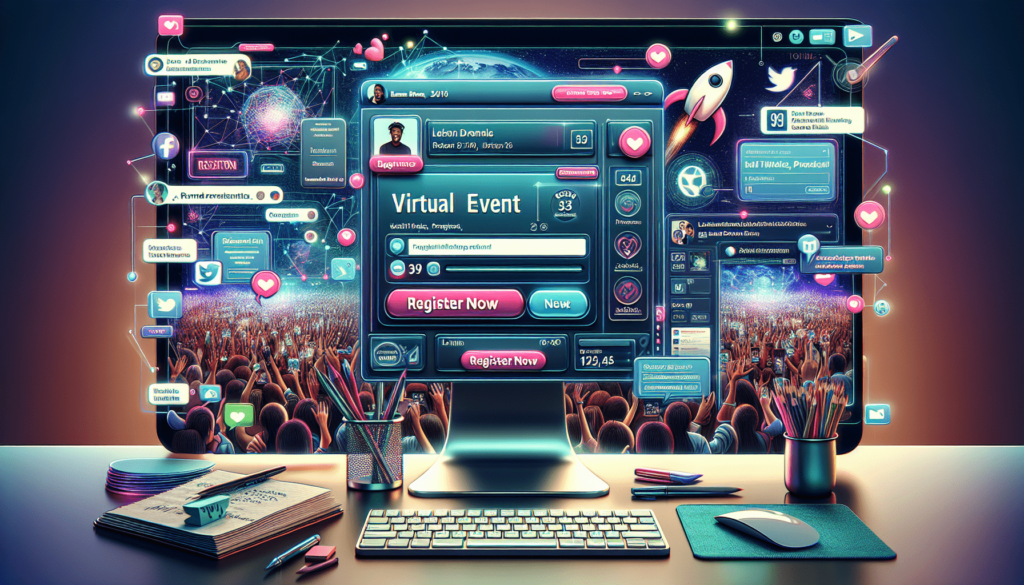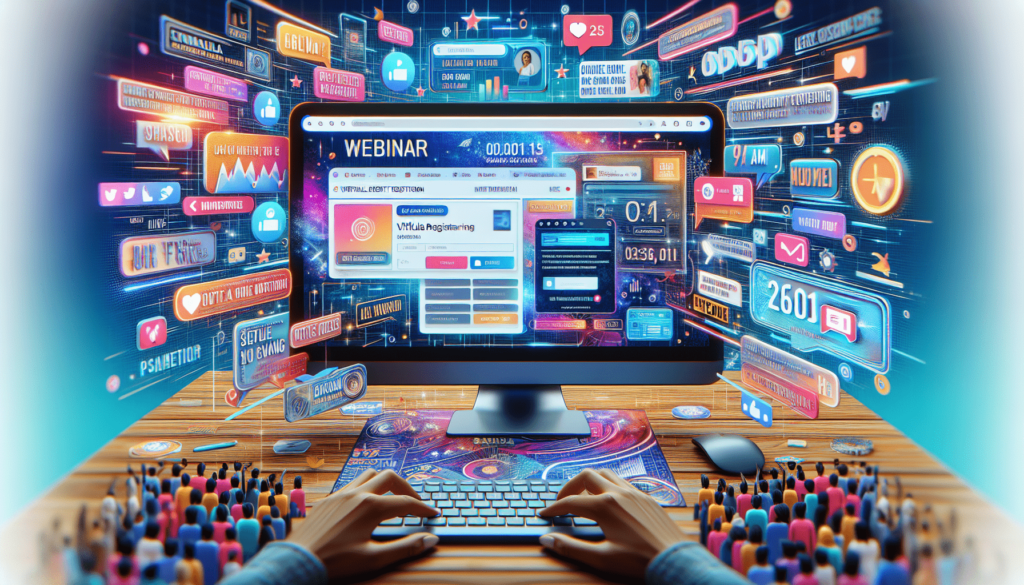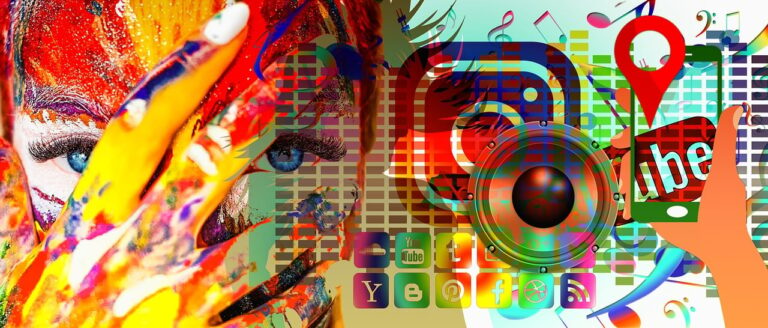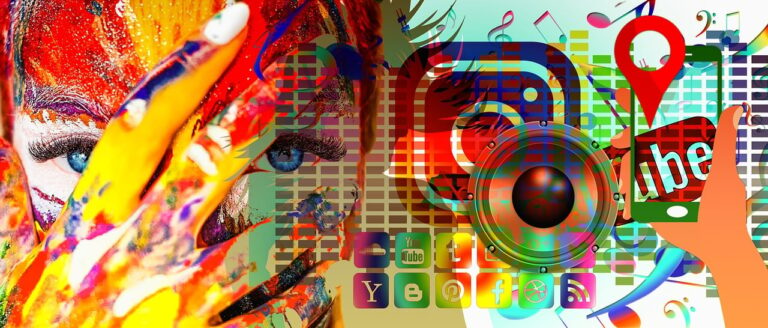How Can I Use Social Media To Promote Online Events And Webinars?
If you’re looking to boost attendance for your online events and webinars, using social media is a great way to create hype and attract an audience. By utilizing platforms like Facebook, Instagram, Twitter, and LinkedIn, you can reach a wider audience, engage with potential attendees, and generate excitement for your upcoming events. From creating eye-catching graphics to sharing behind-the-scenes sneak peeks, social media can be a valuable tool in promoting your online events and webinars effectively. So, don’t hesitate to leverage the power of social media to get the word out and make your events a success! How can I use social media to promote online events and webinars?
Introduction
You’ve put in all the hard work to organize an online event or webinar, and now it’s time to get the word out. Social media is a powerful tool that can help you promote your events and reach a larger audience. In this article, we’ll explore how you can leverage social media to increase attendance, engagement, and overall success for your online events and webinars.
Utilizing Facebook
Facebook is one of the most popular social media platforms, with billions of users worldwide. Creating a Facebook event for your online event or webinar is a great way to generate buzz and attract attendees. Make sure to include all the necessary information such as date, time, and registration link. You can also boost your event with paid advertising to reach a larger audience.
Engaging with Instagram
Instagram is visually-driven, making it perfect for promoting online events and webinars with eye-catching graphics and videos. Create engaging posts and stories to generate excitement and encourage your followers to register. Utilize hashtags relevant to your event to increase visibility and reach a broader audience. Collaborate with influencers or partners to amplify your reach.
Tweeting on Twitter
Twitter is a real-time platform that allows you to share updates and engage with your audience instantly. Create a dedicated hashtag for your event to facilitate conversations and track engagement. Tweet regularly leading up to the event with teasers, speaker announcements, and behind-the-scenes content. Engage with followers who show interest in your event to build relationships and encourage attendance.
Building a Content Calendar
Consistency is key when it comes to promoting your online events and webinars on social media. Create a content calendar outlining the types of posts you’ll be sharing leading up to the event. Schedule posts in advance to ensure a steady stream of content and avoid last-minute stress. Mix up your content with images, videos, testimonials, and countdowns to keep your audience engaged and excited.
Types of Content to Include
- Promotional Posts: Share event details, registration links, and early bird discounts.
- Educational Content: Provide value to your audience with sneak peeks, expert tips, and industry insights.
- Interactive Elements: Polls, Q&A sessions, and contests can increase engagement and make your event more interactive.
- User-Generated Content: Share testimonials, reviews, and feedback from past attendees to build credibility and trust.
- Behind-the-Scenes: Offer a glimpse into the planning process, introduce speakers, and showcase venue setup to create a connection with your audience.

Leveraging Video Marketing
Video content is highly engaging and can help you stand out in a crowded social media feed. Create teaser videos promoting your event, introducing speakers, or showcasing highlights from past events. Host live Q&A sessions or virtual tours to give your audience a taste of what to expect. Utilize platforms like Facebook Live, Instagram Live, or YouTube for maximum visibility and engagement.
Benefits of Video Marketing
- Increased Engagement: Videos capture attention and encourage interaction from viewers.
- Improved Conversion Rates: Video content can lead to higher conversion rates and drive registrations.
- SEO Opportunities: Video content is favored by search engines and can improve your online visibility.
- Shareability: Videos are easily shareable, allowing your audience to spread the word about your event.
- Personal Connection: Videos help humanize your event and build a personal connection with your audience.
Collaborating with Influencers and Partners
Influencers and partners can help amplify your reach and promote your online event or webinar to a larger audience. Identify influencers in your niche who align with your event and have a following that matches your target audience. Collaborate with them to create sponsored posts, host giveaways, or participate in live streams to leverage their reach and credibility.
Finding the Right Influencers
- Relevance: Look for influencers whose content aligns with your event’s theme and target audience.
- Engagement: Check the influencer’s engagement metrics such as likes, comments, and shares to ensure an active following.
- Reach: Consider the influencer’s follower count and demographics to gauge their impact on your event promotion.
- Authenticity: Choose influencers who authentically promote products or events to maintain credibility with their audience.

Measuring Success with Analytics
Tracking and analyzing your social media efforts is essential to understanding what’s working and optimizing your strategy for future events. Utilize social media analytics tools to measure key performance indicators such as reach, engagement, click-through rates, and conversions. Identify which platforms are driving the most traffic and adjust your content strategy accordingly.
Key Metrics to Monitor
- Reach: The total number of people who have seen your posts or event.
- Engagement: Metrics like likes, comments, shares, and clicks indicate how your audience is interacting with your content.
- Conversions: Track how many attendees registered for your event through social media links or ads.
- ROI: Calculate the return on investment from your social media efforts to determine the effectiveness of your promotion.
- Audience Insights: Understand your audience demographics, interests, and behaviors to tailor your content and targeting.
Incorporating Paid Advertising
While organic reach is valuable, paid advertising can give your event promotion a significant boost and help you reach a larger and targeted audience. Platforms like Facebook Ads, Instagram Ads, and Twitter Ads offer various targeting options to reach users based on demographics, interests, and behaviors. Set a budget, define your goals, and create compelling ad creatives to drive registrations for your online event.
Types of Paid Advertising
- Boosted Posts: Amplify your organic posts to increase visibility and engagement.
- Event Ads: Promote your event directly to users who are likely to be interested in your topic.
- Lead Generation Ads: Collect attendee information directly on social media platforms to streamline registration.
- Retargeting Ads: Reach users who have visited your event page but haven’t registered yet to convert them into attendees.
- Carousel Ads: Showcase multiple event highlights or speakers in a single ad format to capture attention and drive clicks.
Engaging with Your Audience
Engagement is key to building a community around your event and fostering long-term relationships with attendees. Respond to comments, messages, and questions promptly to show that you value your audience’s participation. Encourage attendees to share their experiences, post photos, and tag your event on social media to increase visibility and create a sense of community.
Tips for Audience Engagement
- Live Q&A Sessions: Host interactive sessions where attendees can ask questions and interact with speakers in real-time.
- Polls and Surveys: Gather feedback, preferences, and insights from your audience to tailor your event content.
- Contests and Giveaways: Entice attendees with contests, prizes, and exclusive offers to increase participation and excitement.
- Social Media Challenges: Create challenges or hashtags for attendees to participate in and share their experiences.
- Networking Opportunities: Facilitate networking opportunities before, during, and after the event to connect attendees and build relationships.
Conclusion
Promoting online events and webinars on social media requires a strategic approach, consistent effort, and creativity to capture your audience’s attention and drive registrations. By utilizing platforms like Facebook, Instagram, and Twitter, creating engaging content, leveraging video marketing, collaborating with influencers, and tracking analytics, you can increase the success of your events and reach a larger audience. Remember to engage with your audience, incorporate paid advertising, and measure your efforts to optimize your strategies for future events. Start promoting your online events today and watch your attendance and engagement soar!





